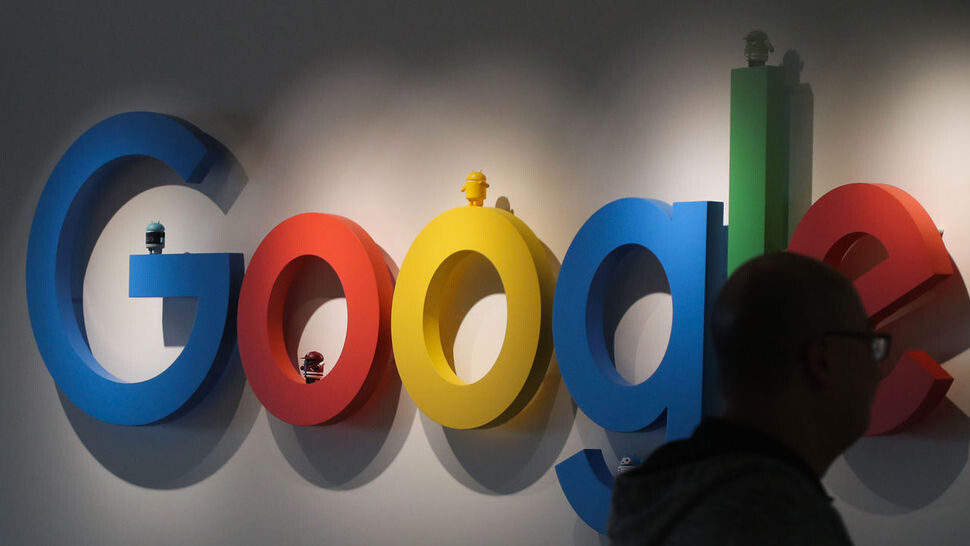hankyoreh
Links to other country sites 다른 나라 사이트 링크
KCC to require foreign internet companies to follow domestic regulations

Before long, nearly all foreign internet companies operating in South Korea, including Google and Facebook, will have to designate local proxies to comply with domestic regulations about user and privacy protection and respond to government requests for data. Prior to this, most of these companies had refused to comply with government policy on the grounds that they did not have an address or place of operations in the country, which has prompted Korean companies such as Naver and Kakao to complain about reverse discrimination.
The Korea Communications Commission (KCC) has been working on a revised version of the enforcement degree of the new Act on Promotion of Information and Communications Network Utilization and Information Protection, which mandates that purveyors of information and communication services without an address or place of operations in South Korea must designate a domestic proxy.
The KCC announced on Dec. 12 that businesses subject to this requirement will be those with total sales of 1 trillion won (US$890.7 million) or more in the previous year, those with sales of 10 billion won (US$8.9 million) or more in the previous year in the area of information and communication services, those who store and manage the data of an average of 1 million or more daily users, and those that have been asked to submit their data.
After publishing the proposed legislation and soliciting comment, the KCC is planning to finalize the revised enforcement decree and submit it to the National Assembly. “These rules will apply to all foreign companies that are providing information and communication-related services to Koreans, including Google, Facebook and Twitter,” said an industry insider.
These multinational firms have operations in South Korea with the word “Korea” tacked on to their names, but they remain separate from their headquarters, which are located overseas. Google Korea, for example, is a company that handles Google’s local advertising, among other operations, but it doesn’t qualify as a “purveyor of information and communication services” as defined by the law.
By Kim Jae-seob, staff reporter
Please direct comments or questions to [english@hani.co.kr]

Editorial・opinion
![[Column] Park Geun-hye déjà vu in Yoon Suk-yeol [Column] Park Geun-hye déjà vu in Yoon Suk-yeol](https://flexible.img.hani.co.kr/flexible/normal/500/300/imgdb/original/2024/0424/651713945113788.jpg) [Column] Park Geun-hye déjà vu in Yoon Suk-yeol
[Column] Park Geun-hye déjà vu in Yoon Suk-yeol![[Editorial] New weight of N. Korea’s nuclear threats makes dialogue all the more urgent [Editorial] New weight of N. Korea’s nuclear threats makes dialogue all the more urgent](https://flexible.img.hani.co.kr/flexible/normal/500/300/imgdb/original/2024/0424/7317139454662664.jpg) [Editorial] New weight of N. Korea’s nuclear threats makes dialogue all the more urgent
[Editorial] New weight of N. Korea’s nuclear threats makes dialogue all the more urgent- [Guest essay] The real reason Korea’s new right wants to dub Rhee a founding father
- [Column] ‘Choson’: Is it time we start referring to N. Korea in its own terms?
- [Editorial] Japan’s rewriting of history with Korea has gone too far
- [Column] The president’s questionable capacity for dialogue
- [Column] Are chaebol firms just pizza pies for families to divvy up as they please?
- [Column] Has Korea, too, crossed the Rubicon on China?
- [Correspondent’s column] In Japan’s alliance with US, echoes of its past alliances with UK
- [Editorial] Does Yoon think the Korean public is wrong?
Most viewed articles
- 1‘We must say no’: Seoul defense chief on Korean, USFK involvement in hypothetical Taiwan crisis
- 2Will NewJeans end up collateral damage in internal feud at K-pop juggernaut Hybe?
- 3[Column] Park Geun-hye déjà vu in Yoon Suk-yeol
- 4Why Korea shouldn’t welcome Japan’s newly beefed up defense cooperation with US
- 5Thursday to mark start of resignations by senior doctors amid standoff with government
- 6N. Korean hackers breached 10 defense contractors in South for months, police say
- 7[Guest essay] The real reason Korea’s new right wants to dub Rhee a founding father
- 8[Column] ‘Choson’: Is it time we start referring to N. Korea in its own terms?
- 9Kim Jong-un expressed ‘satisfaction’ with nuclear counterstrike drill directed at South
- 10[Editorial] New weight of N. Korea’s nuclear threats makes dialogue all the more urgent